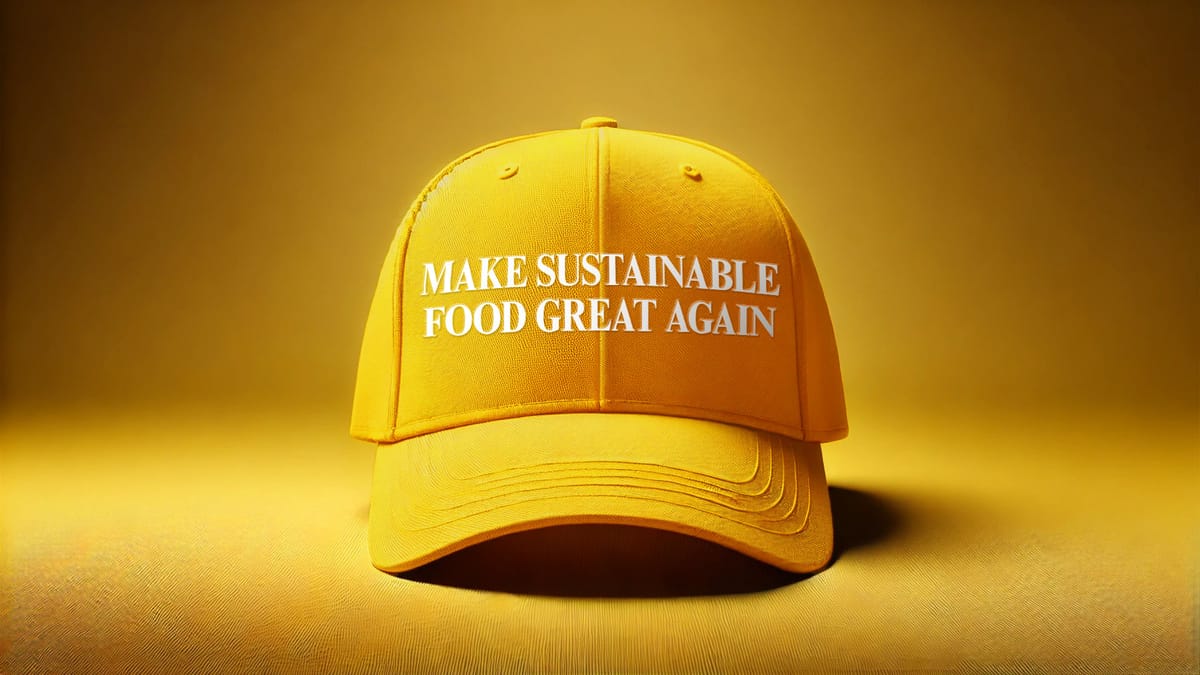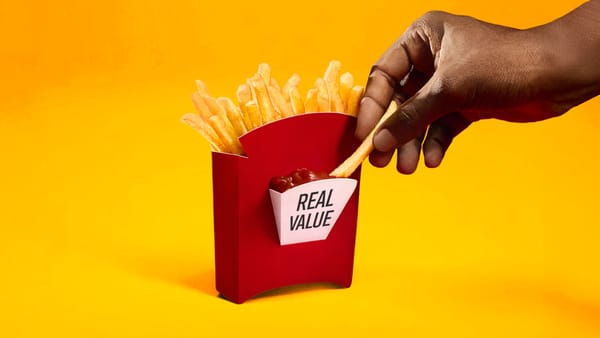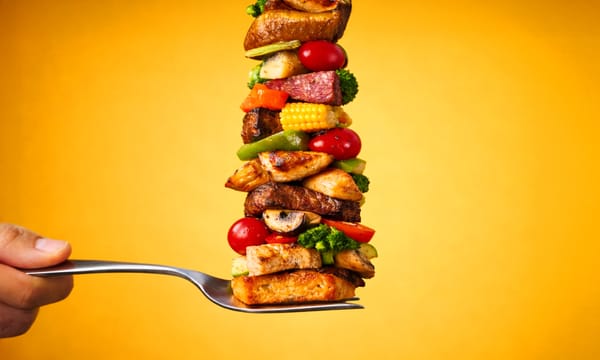UNSTUCK 023: Why We’re (Still) Bullish On Sustainable Food
The world’s largest industry has no choice but to transition

Among the daily noise of defeatism and self-flagellation in the industry it’s easy to lose sight of the gargantuan opportunity that awaits sustainable food. We’re guilty of this too with our occasional (but always constructive!) critiques of brands and industry initiatives.
But when you zoom out from discussing a plant-based nugget or a cultivated meat restaurant pop-up, you realize this is not about incremental improvements, it’s about building an entirely new infrastructure for feeding the planet. Henry Dimbleby, the entrepreneur turned policy advisor and investor, pointed out as much in a recent podcast worth listening to.
For us, here are the top reasons why we remain bullish on sustainable food:
Food is the world’s largest industry
Everyone needs food, making it a fundamental industry that spans agriculture, processing, distribution, retail and food services. Depending on which estimate you look at, the food and agribusiness sector is valued at $10-$12 trillion amounting to 10 percent of global GDP. It employs over a billion people, from farmers and factory workers to restaurant staff and delivery drivers. Call us old fashioned, but if you’re looking to build a brand and a business, it makes sense to fish where the fish are.
Business as usual is physically not an option
The global food system is broken, built for a world that no longer exists. Feeding the world today already accounts for 30% of global greenhouse gas emissions, 40% of the world’s land surface, and 70% of freshwater use. Trying to scale the same model to 10 billion people by 2050 will simply not work. As a much-cited paper in Nature put it, we’re on a path to “breaching planetary boundaries that define a safe operating space for humanity.” In other words, we’re looking at food related conflicts, sky-rocketing food prices, economic crashes, and ecosystem collapse that will put billions at risk of hunger and malnutrition. We have no choice but to make sustainable food work.
This is evident in those countries faced with the more imminent reality of food security (or need for greater self-sufficiency) where the environment for innovation is more favourable than in those where this need isn’t as immediately real. For example, while the US may be challenging at the moment, the Middle East is building an infrastructure to support sustainable food innovation.
Big brands have squandered their trust
In developed markets the majority of packaged food we buy is controlled by a handful of companies. Consumers shop largely on auto-pilot with brands helping them to quickly navigate stores to meet their needs. Big brands don’t want to change because they have created familiar and trusted experiences which have been cost optimised to maximise margins. But what happens when those experiences are no longer trusted and consumers question whether what they are buying is what they should be buying?
There’s a parallel with Big Oil. Not so long ago, oil majors were respected organisations. The opportunities they offered fresh university graduates were seen as great ways to start a career. Since then, major oil disasters, awareness of pollutants, pricing increases, stories of elderly unable to warm homes in the winter whilst exec teams receive bumper bonuses, along with sustainability issues, have diminished trust in oil and energy companies. Big Oil hasn't disappeared but it created the opening for innovation along the value chain – from production to distribution (which Octopus energy in the UK has built their entire brand on transparency).
An industry turning point is starting to happen with Big Food. Awareness of ultra-processed foods (UPFs) and what it’s doing to our bodies will only grow. We don’t see this as detrimental to sustainable food – it could potentially be an advantage because as smaller companies they have greater agility to make better products. The understanding of largely plant-based diets for our health and that of our planet will develop. Awareness of inequality and exploitation in supply chains will build. Innovative companies that solve these issues in a consumer-centric way will start to scale and Big Food will either have to adapt or go to the dustbin of history.
New vectors of transition are appearing
A sure sign that change will happen is when you start to see multiple vectors of that change. Tech hasn’t only changed how we listen to music or book our holidays, it’s changed near every single aspect of our lives. Sustainable foods are still dominated by narratives of meat alternatives. Even at Unstuck we’re guilty of using sustainable foods and alternative protein interchangeably.
But it’s no longer just protein; it’s coffee, cocoa, sugar and more. It’s no longer just human food; it’s pet food and animal feed. It’s no longer just silicon-valley style VC-backed start-ups; retailers are joining funding rounds, governments are providing infrastructure grants, major food companies are founding independent start-ups to increase the chance of success in the knowledge that innovation from within rarely succeeds.
We’re well aware transition is slower than those of us in the industry would like, not all governments are doing as much as they could and funding has dropped significantly. But in just the last few years we’ve seen these multiple vectors appearing and that can only be a positive sign that the wheels of change are in motion.
The smart money is flowing in
Many sustainable food entrepreneurs we talk to these days are understandably stressed over fundraising. While we’re certainly not back to the irrational exuberance of 2019, the right ideas are getting funded across the new food stack. This can be a £75k cheque to Omni, a plant-based dog food brand, on the Dragon’s Den. It can be $50m of funding for Liberation Labs to build industrial-scale precision fermentation capacity in the US and Saudi Arabia. Or it can be a $1 billion commitment from the Bezos Earth Fund to transform food and agricultural systems starting with the opening of research centers in the US, UK and Singapore.
Put these together, and in our view the thesis for sustainable food remains strong. Sure, the marketing bit is still a problem. But it’s a fixable problem, and one we know how to address.
We’re betting on sustainable food. Are you?






